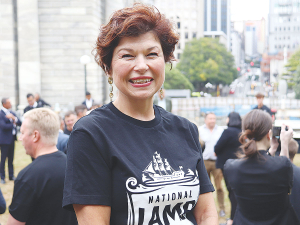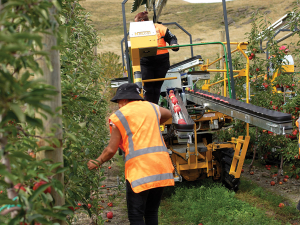This year won't be an easy one for the red meat sector, says Meat Industry Association chief executive Sirma Karapeeva.
Speaking to Rural News at the National Lamb Day celebrations at Parliament, she said there are big domestic and international challenges on the horizon as well as a lot of geopolitical issues NZ cannot control.
"But we are watching them very closely and I think the foundation that we have in the industry put us in a good position to be able to pivot and mitigate the risks if they come," she says.
Karapeeva says the new Trump administration is unpredictable so there is potential for disruption. She says for now they are just watching for any change that directly impacts the sector.
Trump's trade policies come at a time when the US operates a large negative trade balance with the rest of the world. This happens when a country buys or imports more from other countries than it sells or exports to them.
Agriculture Minister Todd McClay points out that NZ's trade with the US is well balanced and complementary.
"We more or less buy similar amounts from each other. Actually, NZ exporters face higher tariffs into the US than their exporters do to us," he told Rural News. "So there is a very good story to tell the administration about the fact that we are good partners, we get on well, we trade very well with each other, we respect the rules and there are ways to grow trade between the two countries," he says.
McClay says it's good that NZ doesn't have a huge trade imbalance with the USA and this should be to our advantage. He says that in the coming year, he and other NZ politicians will be visiting the US to talk to their counterparts and officials and also to meet them on the sidelines of other world events.
In the meantime, Karapeeva says the sector intends to keep a low profile and let things ride.
There has been talk of a slow start to the meat processing sector - especially in the South Island - and Karapeeva says while there may be some over capacity in some areas, it's important this is retained to manage the ebbs and flows of the season. She says the season is just kicking off but it's unlikely there will be any increase in stock numbers anytime soon.
"We will do the best to process in a timely manner and get the product into the export markets as required," she says.


















